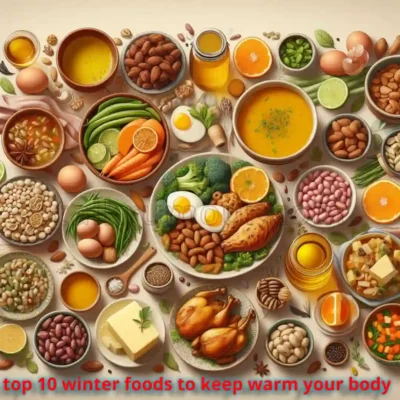Your well-being is dependent on a healthy diet at any age. Your general health, as well as your emotional and mental state, is all impacted by the meals you consume. They also fuel your body for physical activity. Although calories—the fundamental constituents of energy—are present in almost all nutritious foods, not all calories are produced equally. If you’re visiting Birmingham, don’t miss out on the delicious burger places scattered throughout the city, offering a wide range of mouth-watering burger options on burger places Birmingham. Let’s investigate what that means & the distinction between nourishing and overflowing our bodies.
Increasing Energy Levels
We can power our daily tasks with a consistent supply of energy from nutrient-rich foods. Nutrient-dense food choices maintain energy levels during the day, in contrast to processed and sugary foods which trigger energy spikes and crashes. Together with proteins and fats, the complicated carbohydrates present in whole grains, fruits, and vegetables assist with maintaining stable blood sugar levels while providing people with a long-lasting sensation of energy.
Mental Health and Mood Regulation
It is commonly known that eating and mood are related. Foods high in nutrients may possess a good effect on the neurotransmitters and hormones which regulate how you feel and how you feel. For instance:
Tryptophan:
Tryptophan, an amino acid present in foodstuffs like turkey, eggs, & nuts, can affect serotonin, the “feel-good” neurotransmitter.
Omega-3 fatty acids:
As previously mentioned, research has shown that consuming these good fats may lower the likelihood of developing sadness and anxiety.
B-vitamin-rich nutritious foods:
These include leafy greens, whole grains, as well as lean proteins that encourage the development of neurotransmitters that regulate mood.
Nail, Hair, And Skin Health
Healthy skin, hair, and nails may come from consuming a diet high in vitamins, minerals, & antioxidants. Collagen, which is necessary for skin suppleness and a beautiful skin tone, is produced by the body with the help of vitamins and minerals like vitamin C, zinc, and biotin. Omega-3 fatty acids also support healthy nails and lustrous hair.
Cognitive Ability and Mental Acuity
In addition to having an impact on the way we feel physically, what we eat also has a big impact on how well our brains function as well as how clear our minds are. Omega-3 fatty acids, antioxidants, & vitamins B, C, and E are a few nutrients that have been scientifically related to better memory and brain function.
Omega-3 fatty acids:
Omega-3 fatty acids are needed for brain growth and function & are abundant in fatty fish, flaxseeds, and walnuts.
Antioxidants:
Foods high in antioxidants, such as blueberries, spinach, and dark chocolate, aid in preventing the effects of oxidative stress on brain cells and may enhance memory and thinking abilities.
Vitamins B, C, and E:
These nutrients have been linked to a lower risk of cognitive decline caused by age and play important functions in brain function.
Lower Risk of Chronic Illnesses
A diet high in healthy foods has been scientifically linked to a lower incidence of chronic conditions such as type 2 diabetes, sure malignancies, and hypertension. Foods high in fibre, such as whole grains and legumes, aid in regulating blood sugar levels and enhancing insulin sensitivity, both of which are essential for managing diabetes. Foods high in antioxidants can combat damaging free radicals and shield cells from deterioration, possibly reducing the likelihood of cancer.
Better Sleeping Conditions
The type of food we eat may influence how well we sleep. Tryptophan and magnesium are two nutrients that are believed to encourage relaxation and more restful sleep. These nutrients promote restful sleep as well as can be found in foods including leafy greens, nuts, seeds, and dairy products.
Conclusion
In conclusion, nourishing our bodies with food gives a wide range of advantages which improve our overall well-being and health. The effects of a nutrient-rich diet are significant, ranging from greater physical wellness to improved ability to think, emotional control, and decreased risk of long-term illnesses. A better and more energetic life may be attained by making deliberate decisions about including a range of fruits, vegetables, whole grains, lean meats, and healthy fats in our regular meals. It’s important to keep in mind that even little dietary adjustments can have a big impact on our long-term well-being; therefore prioritising nourishment in our life is worthwhile.










